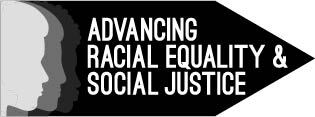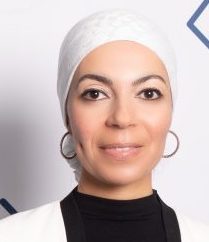Structural racism is killing us—now what? Here are some policy recommendations

Image from Shutterstock.com.
On Dec. 9 and 10, the ABA Section of Civil Rights and Social Justice Rights of Immigrants Committee hosted a two-day policy summit exploring some of the most pressing civil rights issues confronting our nation. In a strategic partnership with the German Marshall Fund, a public policy organization, the ABA began its exploration of interpersonal, institutional and structural discrimination with the virtual session titled "Structural Racism Is Killing Us. Now What?"
Against the backdrop of a global pandemic, our initial conversation focused on systemic racism—the ways in which laws are used to give advantages to the majority population while creating disadvantages for racial, ethnic and religious minorities by limiting equal access to resources.
Significantly, the moderated exchange with an interdisciplinary group of scholars culminated in a slate of practical policy solutions. The policy proposals are intended not only to address the pandemic’s disproportionate impact on Black, Latino and indigenous communities but also the underlying realities contributing to such disparate health outcomes and inequities.

Engage impacted communities
To realize health justice, Saint Louis University School of Law professor Ruqaiijah Yearby insisted that federal, state and local government officials must engage low-income and marginalized communities in crafting responsive interventions to the evolving public health crisis. For instance, to ensure more equitable vaccine distribution, such officials should work with diverse racial, ethnic and religious communities because their involvement is essential to ensuring successful implementation.
Relatedly, professor Carlos Rodriguez-Diaz, a community health expert based at George Washington University, explained that the inclusion of heterogeneous community members and scientists at the decision-making table can help translate scientific knowledge to the public more broadly while ensuring more effective and culturally appropriate responses given different cultural norms, language barriers and lingering distrust of medical professionals.
Because health systems are steeped in histories of oppression, including medical racism and violence in Black and indigenous communities, diverse leaders can help address and overcome related anxieties with messages that resonate while informing new community approaches.
Collect disaggregated data
To understand the pandemic’s impact on diverse populations, ensure effective policy responses and facilitate equitable health outcomes, disaggregated data regarding prevalence, testing, hospitalizations and mortality rates is required. State and federal entities should disaggregate data by gender, race, ethnicity, religion, socioeconomic status, age, immigration status, disability, education and geographic area.
According to professor Randall Akee, an economist and chair of the American Indian Studies Interdepartmental Program at UCLA, the dearth of disaggregated data undermines the ability to effectively disseminate information regarding transmission rates and health effects amid a global pandemic. This, in turn, exacerbates the public health crisis. Indeed, disaggregated data contributes to more responsive policies that should not only address the effects of the coronavirus but the underlying inequities creating disparate outcomes in the first instance.
Ensure equal access to resources
Our scholars agreed that unequal access to essential resources and other structural inequalities proved key to disproportionate rates of coronavirus infections. For instance, Akee highlighted how the lack of access to running water, physical distance from medical clinics and geographic isolation exacerbated the public health crisis in Native American communities. Similarly, Rodriguez-Diaz argued for a health system that participants can access equally despite disparities in income and wealth.
In response to such socioeconomic realities, potential policy solutions may include mandating universal healthcare, mainstreaming telemedicine and making critical health services available at local houses of worship and community centers in impacted neighborhoods.
Consider the heterogeneity within marginalized communities
We often view racial, ethnic and religious minority groups in monolithic terms. Rodriguez-Diaz urged that we consider the heterogeneity within each of these communities. For instance, he explained that various factors influence the health outcomes in the Latino community, including occupational backgrounds, length of U.S. residence, and experiences with structures of power and racism. In other words, not all Latinos are the same.
 Engy Abdelkader.
Engy Abdelkader.
Address structural barriers to equality
Beyond the coronavirus crisis, there are particular structural factors undermining racial equality that should be addressed; without doing so, marginalized communities will consistently find themselves in a perpetual state of crisis. First, a national housing bill mandating access to water and safe housing is necessary.
Second, policymakers should legislate a guaranteed basic income for all. Third, we need expanded Medicaid and Medicare coverage to ensure enhanced opportunities for prevention in addition to medical treatment. Fourth, the newly constituted U.S. Congress should fully restore the Voting Rights Act to ensure political accountability. Indeed, if elected officials are more accountable to all their constituents, they will be more responsive to diverse segments of the population experiencing structural barriers to equality.
Last, rather than allocating billions to build a barrier wall at the southwestern border with Mexico, we should fund anti-poverty programs to ensure better health outcomes, better civic engagement and better educational opportunities for all Americans.
Engy Abdelkader is chairwoman of the ABA Section of Civil Rights and Social Justice Rights of Immigrants Committee and a fellow with the German Marshall Fund of the United States. She teaches at Rutgers University.



